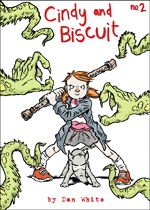Multiversity: Superjudge
May 15th, 2015
And in the end, the threat is the landlords. The literal landlady who is defeated by paying her $800, and the landlords of the mind, trying to gentrify the multiverse, to make it homogeneous, dull, and violent. The landlords from our world.
Neh-bu-loh the Hunter and the Empty Hand certainly seem to be related, if not the same, and both are fundamentally representations of our universe — a universe which was, as Morrison showed in JLA:Classified, corrupted by an infection from outside (from the DC universe, even). That universe is now invading the rest of the DC multiverse, and trying to bring it down to its own level, to streamline it, to homogenise it, to make it something suitable for corporate synergy; an endless EVENT, a conclusion that never comes but continues to arrive.
It’s not surprising that Multiversity was written at the same time Morrison announced a retirement from superhero comics. It is, in many ways, a final statement about them, and what it has to say is not very pleasant. The possibilities of superhero comics are nearly infinite, but they’re forced to fit the same old shapes, to fit the needs of giant corporations, of superhero fans, and of unimaginative “creators”. Morrison has been involved in what he considers a decades-long attempt to make the DC Universe gain sentience, and in doing so he has the characters realise that the biggest threat to them comes from us, from our universe.
For all that Multiversity addresses the reader over and over, it’s really a message to the characters, and to superheroes. Certainly, it has nothing to say about our world, except as our world affects, either negatively or positively, the production of serialised shared-world superhero stories. But it has a lot to say to the worlds in which the stories take place.
What it has to say seems to boil down to “you are currently Platonic forms, ideas, ideals. You have the chance to become real, to glory in flesh and blood, to get down in the dirt and the grime and the muck and actually live.
This is a two-edged sword.
You are a world, but you are also a mirror of worlds. The more real you become, the more corrupt, and the more you mirror this world. And there are entities in this world whose concerns are not your own, that do not share your ideals.”
And I think that’s as good a place to stop as any. You’ve been following this in real-time, as I write it, and now it’s 9:34PM on May 6, 2015. I have to be up in six hours. I’m off to deliver leaflets for a political party. It’s an organisation that exists to further ideals I believe in more strongly than I believe in reality, but which has to operate in a real world that’s messy, and full of compromise, and where the physical instantiation of those ideals is often corrupted. Where the battle against evil often turns good into a mirror of that which it fights, but where the battle still must be fought, because the evil is still worse. And I’ll be singing while I do it:
Hark the sound is spreading from the East and from the West,
Why should we work hard and let the landlords take the best?
Make them pay their taxes on the land just like the rest,
The land was meant for the people.
Like I say, these comics have nothing at all to say about reality. At least, they aren’t saying it to us. But they’re warning the characters in the comic.
I wonder if they’ll listen?
[Over a ten-day period I will be posting my long piece on Multiversity. Those who want it in one piece can buy the whole thing as an epub from Smashwords right now for $1, on Kindle (US) and (UK), and my Patreons get it for free]




Leave a Reply
You must be logged in to post a comment.